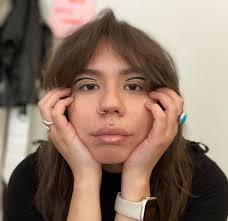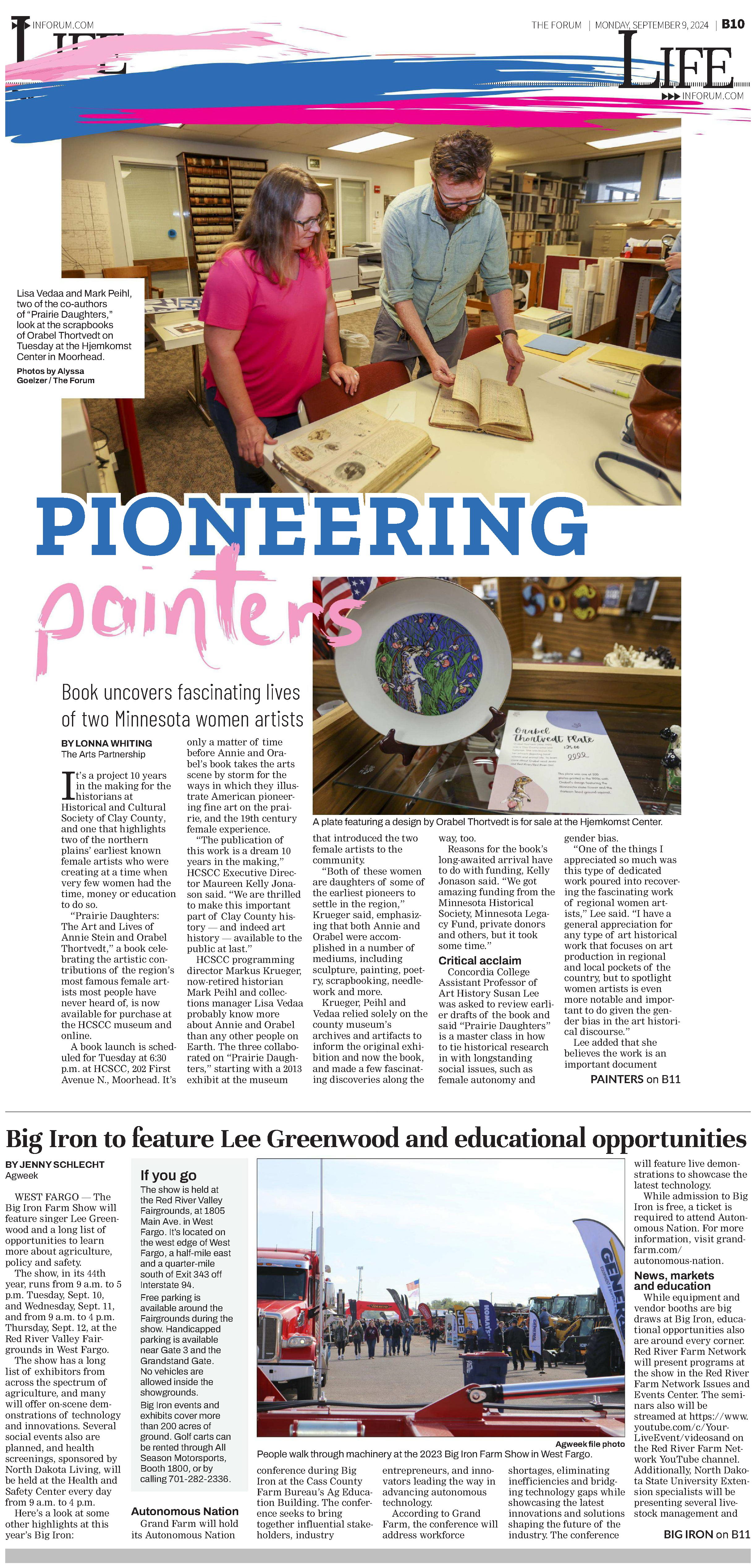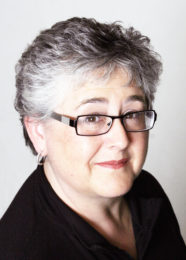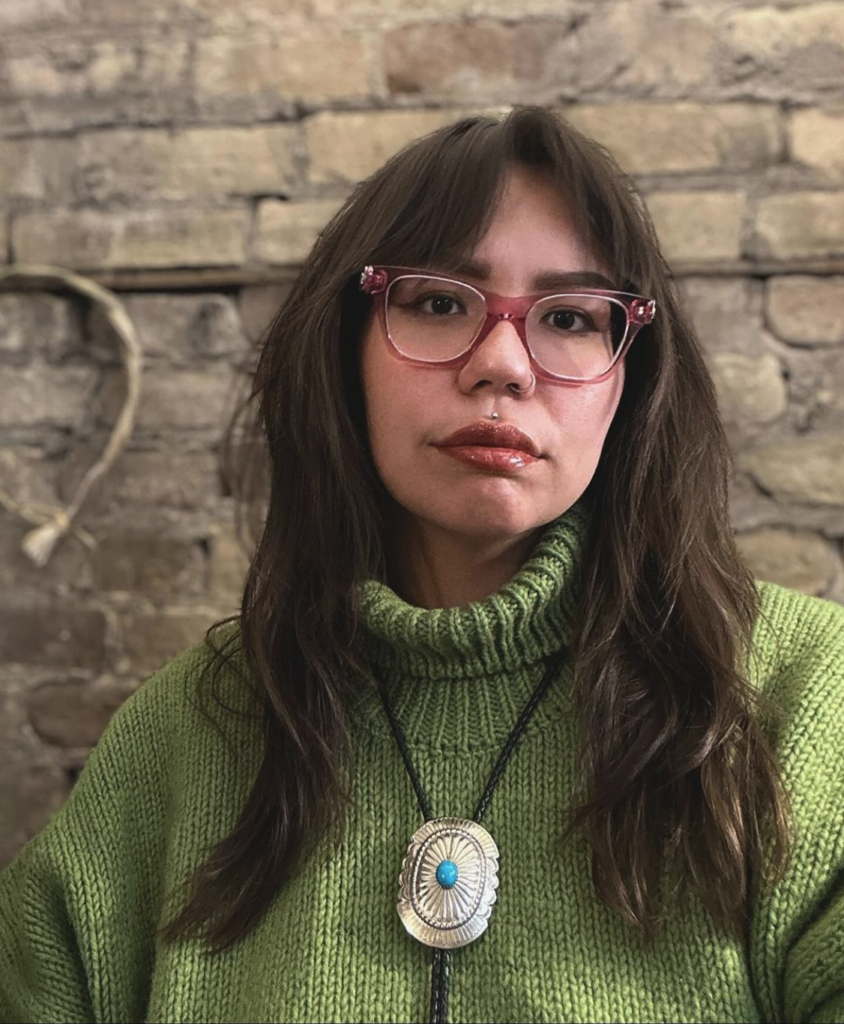
The sprawling floor-to-ceiling windows toss golden curls of light onto the wooden floor of the atrium at Plains Art Museum in downtown Fargo.
Curator of Indigenous Programming and printmaker Delia Touché perches on the edge of a black leather couch, hands cupped in front of them like they’re holding something delicate. A porcelain figurine, perhaps. Better yet, a bird ready for flight.
“I’m a modern Native,” Touché said, reflecting on the distinct differences between urban life and their Sisseton Wahpeton Dakota and Assiniboine roots. “I feel like a lot of Native artists have a balancing act between modern artists but also acknowledging our cultures, too.”
The Indigenous diaspora is something Touché addresses in their printmaking and bookmaking, both practices (among others) that’s brought them to the forefront of local, regional and national modern Indigenous art since graduating from Minnesota State University Moorhead in 2021.
“Books and printmaking are my first true loves,” they said of their work.
Touché, a grantee of The Arts Partnership and the recipient of numerous other awards and residencies, has work in permanent art collections at the University of North Dakota, St. Olaf College’s Special Collections Department, Walker Art Center, Minnesota Historical Society, Northwestern University and Bainbridge Island Museum of Art.
Much like the vision for Indigenous programming at Plains Art Museum where they work, Touché aims to present the Native American experience in an empowered, decidedly un-shy, way. Their practice is influenced by themes such as family lore, Dakota and Assiniboine tradition and pop culture, and museums across the country have responded enthusiastically.
An exhibit about moving tradition into the future will include an art installation by Touché and is set to open at the North Dakota Museum of Art in 2025.
Flying off
A member of Spirit Lake Nation, they were born and raised in the Devils Lake, ND, area and lived in Grand Forks until they became an adult.
“As soon as I turned 18, I moved to Fargo. [Devil’s Lake] is a small town, it’s very close to my reservation and I saw people stuck there a lot and I guess I never wanted to be stuck there,” they said. “You either stay with your Reservation or you go to the city, and I chose the city.”
Since that time, Touché has been busy exploring and deconstructing their worlds through printmaking and bookmaking, all the while redefining what home means to them.
Inspired by their great-grandmothers’ star quilts and “Uncle Jay’s beadwork,” Touché knows how to uncage elements of their history while recognizing the benefits—and burdens—of living between two worlds.
Growing up with ten aunts and uncles, and “so many cousins,” many of Touché’s family members are or were artists, including her great-grandmother, who was an expert star quilter.
“My great-grandma was so perfect with her stars and diamonds aligning in her quilts. … She’d make this perfect diamond and she’d gift it to you as a stencil,” Touché said.
But instead of inspiring perfectionism in their own work, which is all done by hand, Touché said it did the opposite.
“I think about how most Native women learned how to quilt in boarding schools and wonder what it took for my grandma to be perfect,” they said. Now, when they quilt, “my diamonds don’t have to align, and that’s OK.”
Making their way back home
Touché graduated with a drawing degree from Minnesota State University Moorhead in 2021 and attended graduate school at the Cranbrook Academy of Art, Bloomfield Hills, Mich., in 2022.
“I was a drawing major, but I hated drawing,” Touché said. “I thought it was a good foundation to have, even though I didn’t know where I wanted to go artwise. And then I found printmaking.”
Through printmaking, they were able to make space to further their dialog around the Indigenous diaspora and what Touché refers to as “making my way back home,” a journey that brought them right back to their family and to Fargo after a bout of homesickness.
“Being near Detroit, which has a great arts scene, I wondered if I wanted to settle down there,” they said. “But I was missing my family a lot. I left my partner here. My dog was here. Towards the end of it I was making prints of my family members and making quilts for a graduation exhibition, and I just wanted to go home.”
Touché kept busy for a while with artist residencies throughout the United States until they took the position at Plains Art Museum.
“I was used to working on my own stuff in graduate school and having my own space. Also, I didn’t have anyone except my school friends and no distractions, so now I’m committed to working full-time,” building and sustaining the museum’s Indigenous programming.
Settling in
With a full-time work commitment and many projects in the works, Touché doesn’t have as much time to ponder what home means to them as they did during school, but the trade-off seems to be worth it.
“I’m currently in the midst of making artist books from a residency I did in Montana. It’s called Open Air and I took Polaroids of the land and wrote on them, and I’m going to make books out of that.”
They and their partner Doug Nayes live in a downtown apartment with their dog, a space large enough for Touché to have a home studio and that’s a short walk to the museum.
Although Touché has reservations about “selling out” by being Native American and selling their art to institutions, they ultimately realized Indigenous communities need more representation, not less.
“When I sold my book to the Walker (Art Museum), they mentioned to me that they don’t have any other Dakota Assiniboine artists’ books anywhere,” Touché said. “They told me they brought a group of Native American kids to the museum and they didn’t have anything to show them. Now when they come back, they can see my book. Just being a presence is enough and inspirational.”
Touché said she will always be an enrolled member of Spirit Lake. “That won’t ever change,” she said, but she’s also open to exploring where life might take her outside real and imagined borders.
“I have to live in contemporary society but I also need to acknowledge where I came from, who my people are and the land that raised me. If I forget about that, the colonizers win,” they said.
Follow Touché’s work on Instagram or their website.
This article is part of a content partnership with The Forum and Forum Communications and was previously published on September 16, 2024.
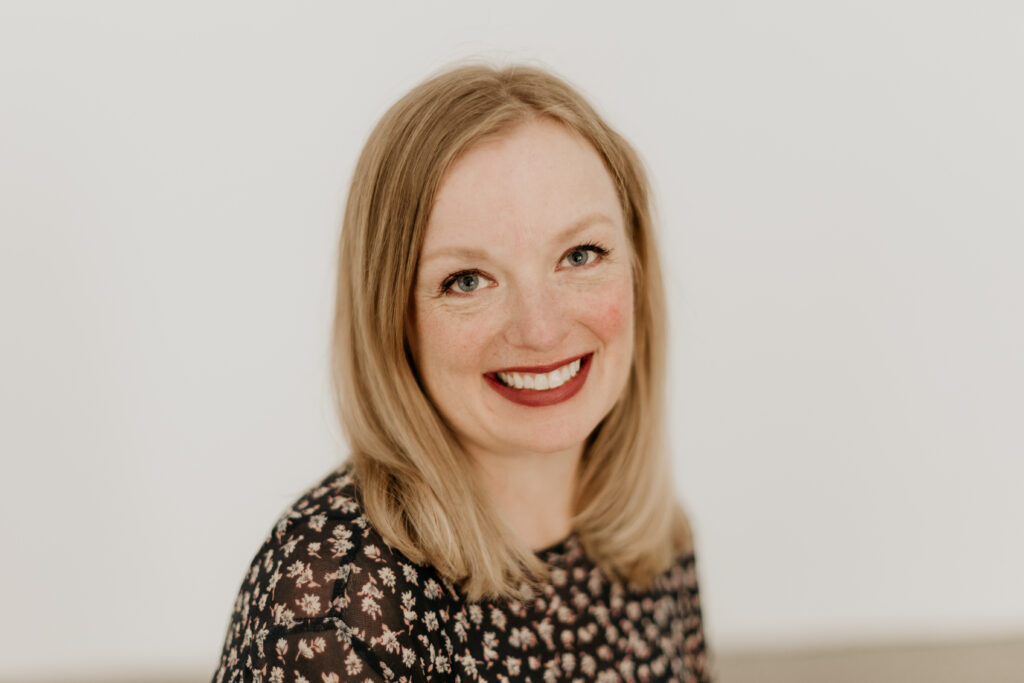
About the author
Lonna Whiting is a freelance writer and owner of lonna.co, a content marketing and communications agency located in Fargo, North Dakota. She is a frequent contributor to The Arts Partnership’s content library and also provides strategic communications consultation to the organization.

